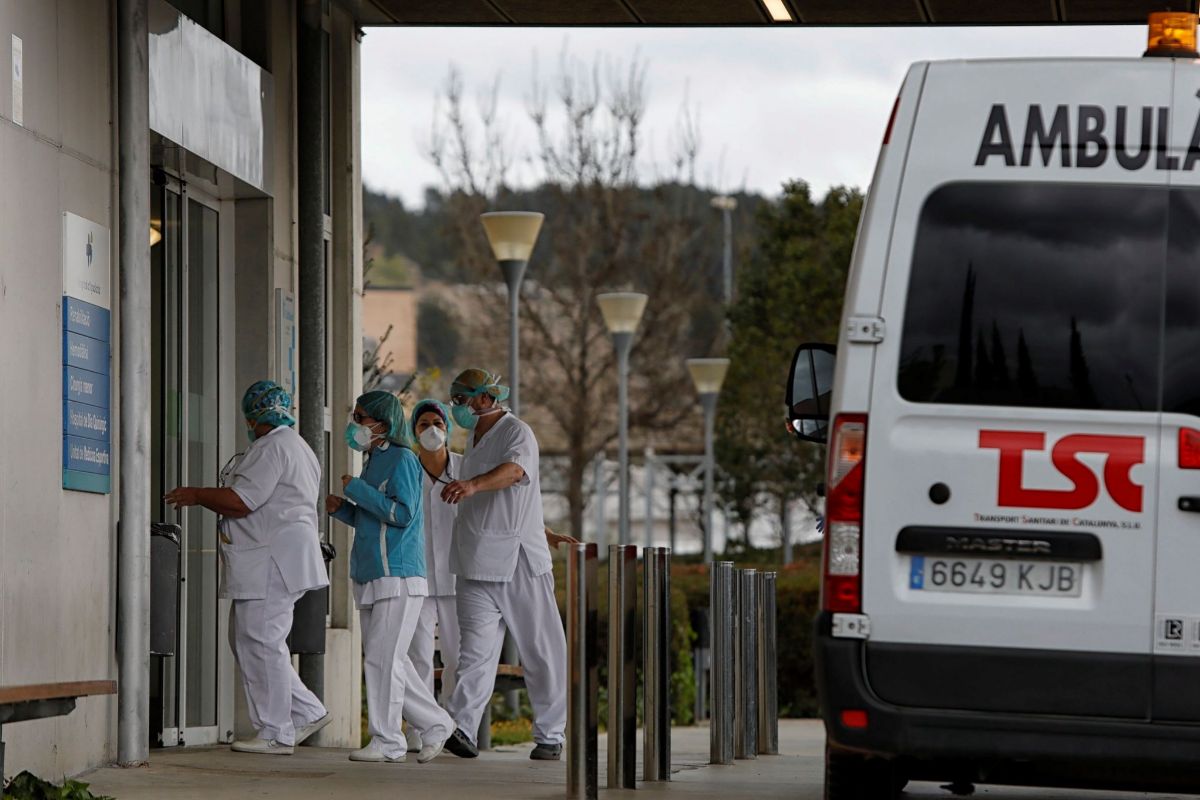- Last minute.Coronavirus in Spain, last minute | WHO warns: "The pandemic is accelerating"
- More about Sepsis: The invisible disease that kills 17,000 people a year
- Graphic Map of the coronavirus in Spain
More than 2,200 are the deaths registered to date by coronavirus in Spain. Most of them have occurred in less than 48 hours since admission to the hospital. These are clear examples of what happens in most cases of infection: "Mortality is finally caused by sepsis, " says Marcio Borges, coordinator of the multidisciplinary Sepsis unit at the Son Llàtzer University Hospital in Palma de Mallorca.
As this specialist explains, "the immune system of those affected responds disproportionately" against the threat of a specific bacterium, "leading to a multi-organ failure" that ends in death. The trigger element is not always a bacterium (in 85% of cases), parasites, fungi or a virus such as Ebola or Coronavirus can also be the origin of all this complex and rapid process.
In the opinion of this specialist, even without having a specific antiviral for the treatment of Covid-19, mortality could be drastically reduced simply upon admission to a hospital with Sepsis Code . "Hospitals like Torrejon or Vall d'Hebron, which have received cases of coronavirus contagion, have it implemented." Around 150 hospitals have this multidisciplinary program, but there are more than 700 in Spain.
Sepsis is the leading cause of hospital death in the world. It is estimated that between two and four new cases of severe sepsis per 100,000 inhabitants are registered every day and in recent years the incidence has increased due to the increase in older patients, immunosuppressed, receiving chemotherapy or undergoing surgery. "The implementation of the Sepsis Code is an urgent need. We know that treatment during the first hour significantly reduces mortality," so it is crucial to be able to quickly diagnose the problem.
The problem is that the differential diagnosis is complex, the initial symptoms are nonspecific and variable according to the individual, and can only be diagnosed with a microbiological analysis whose results take between six and 24 hours. The solution: the Sepsis Code, which provides a coordinated response and implements effective strategies for dealing with the disease . In Borges's words, "the management of sepsis is time-dependent, like strokes or heart attacks. The sooner we detect the existence of sepsis, the sooner we begin to treat it and the better the evolution will be." Thanks to the Sepsis Code established in 2005 at the Son Llàtzer University Hospital in Palma de Mallorca, "mortality from sepsis has been reduced from 37% to 13%".
This expert has no doubt that the correct and early management of this problem is key in the case of epidemics such as Covid-19. "The implementation of this type of code allows a faster intervention in this type of emergency [..] What we need is sepsis culture . Given certain symptoms, think first that it may be sepsis," says the expert. "A total of 25 national scientific societies have been working for years to incorporate protocols such as the Sepsis Code into the national health system."
The current coronavirus pandemic, adds the specialist, "shows us the importance of having response protocols to face the fight against a pathogen for which we still have little information about its life cycle, its contagion capacity and the real degree of mortality" .
Years ago, with the epidemic of severe acute respiratory virus (SARS), "mortality went from 10% to 1% with case management in a new hospital prepared for sepsis and other measures," says Borges.
According to the criteria of The Trust Project
Know more- Science and health
- Coronavirus
- Covid 19
- China
EpidemicChina successfully develops a coronavirus vaccine and gives green light to human testing
SaludChina says it will send health supplies to Spain and offers medical experts
Health "Coronavirus care is like a continuous 11M"

